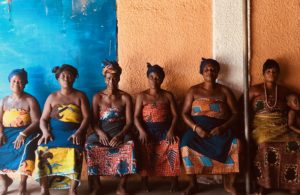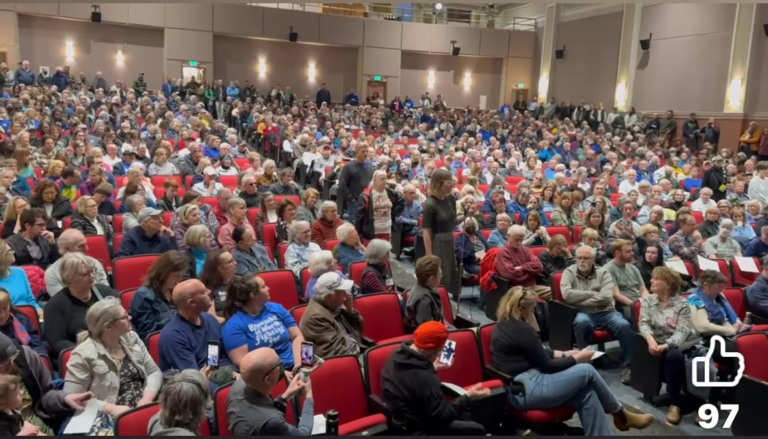 We have just returned from two and a half weeks with the Ewe people in the Volta Region of rural Ghana. We are still processing the impact of our amazing experience. It was so far removed from our modern North American lifestyle, it has given us a lot to think about.
We have just returned from two and a half weeks with the Ewe people in the Volta Region of rural Ghana. We are still processing the impact of our amazing experience. It was so far removed from our modern North American lifestyle, it has given us a lot to think about.
During our time in Ghana, we were invited to witness and participate in ceremonies and rituals that honor many different aspects of their lives. Most of them were related to giving thanks, blessing and honoring their ancestors, their purpose in life and God. It left us considering that there is much we can learn from them about living a more connected life.
It was humbling to observe without judgement. I think it allowed us to learn more deeply. So, let me highlight the impact our trip to Ghana has had on us.
Honor Your Relationships
The importance of relationships of family and friends is all important to the Ewe people and includes a level of trust that we don’t often find. We were there at the invitation of a dear friend who we’ve hosted in our home many times over the years. The reciprocity he showed us was amazing as he literally gave us his home for our stay, asked his son to be our driver and his niece to cook for us for a week before he arrived.
We had been there 2 years before and there were people welcoming our return. In a rural community, your family, cousins and nieces are a regular part of your life. We met more family and friends who all have a role to play in our host’s life. It felt like we were being embraced in a large cocoon. It’s been half a century since most of our American families operated like this.
Relationships are honored in Ghana. When someone comes to visit, they have specific ritualized greetings including a 4-step handshake and an offering of a libation of water, followed by juice, gin or whisky. You are asked standard questions that have standard responses – how are your parents, your children, your health, ect.? When taking the libation, you also pour some on the ground, an acknowledgment to honor the place and mother earth. It’s a bonding ritual that draws people together and creates joy.
Our culture has moved far away from this process of acknowledgement of the importance of people and place.
We want to put more attention to honoring our relationships and this beautiful place where we live– is there anything more important?
The Power of Rituals In Ghana
Rituals are built into many facets of Ewe life. The greeting is the most obvious, but there are rituals embedded in many things we don’t consider in our culture. For starters, in the rural areas, the source of their food is living with them. They are surrounded by their goats, chickens, rams and turkeys which at some point will be their dinner. But before that happens, their death is often honored in rituals of prayers and thanksgiving for the blessings of their life.
Many of the rituals are done annually. It took a week for our host to get through them all. They involved giving thanks to his ancestors, his God and spirit guides, which included cleansing and blessing the many alters he has to them. He also gave thanks for his purpose in life – being a master drummer and professor of music at the University of North Texas. To do this he blessed and cleansed the 36 handmade drums he has in Ghana. Each of these rituals involved meditative prayer starting the day before, collecting special herbs for cleansing water and hours of prayers during the cleansing and blessing.
How much time do we spend giving heartfelt thanks for our many blessings in life. What are our rituals for this?
We want to increase our time spent in gratitude, finding ways to ritualized our thanks.
The Ewe of Ghana See The Spiritual Connections in Everything
There is a popular symbol in Ghana which represent the connection between heaven and earth and is understood as “God is Everything”. This is a simple concept that means volumes to the Ewe people. All living things and aspects of nature are considered sacred – they have consciousness and worthiness.
This concept gets translated into deep appreciation and acknowledgement of the relationship we have with the natural world and each other. For example, our host’s 36 handmade drums were all selected from trees that “spoke” to the drum maker, indicating its willingness to be a fine drum. The size and the dimension of the drum was also given by the tree. There is a relationship between the tree and the drum maker. You can understand this concept if you’ve spent any time with trees, but our relationship between the trees and our wooden houses, furniture or drums has long been disconnected. Is there something we can do or want to do about this?
We can all start by being more spiritually aware of our relationship with the natural world right where we are. What actions would help you honor this?
There’s Equality Between The Divine Masculine And Feminine
The concept of God to the Ewe people includes both the divine masculine and the divine feminine representation. This creates a radically different mindset that translates into very different assumptions about the role of men and women. In all matters related to involvement in spiritual roles, they are considered equal. And because the divine feminine is considered the initiators of inspiration and creation, women are highly respected.
How this concept gets translated into society is profound. Women are trusted and appreciated. They are the primary business people, shopkeepers, money makers, they hold office, they are leaders. Equality is assumed. Socially, this doesn’t always hold true as women are often in the kitchen while the men eat and talk, possibly a carryover from British rule. But, I can say as the only women in many gatherings of men, I consistently felt highly respected and heard. The difference was stunning.
Can we recognize what all of nature knows to be the truth, that both the masculine and feminine must be equally present for something to be created?
If we adopted this mindset of equality, imagine how the problems of gender bias could be solved.
These are some of my observations from our immersion in the highly complex and ritualized culture of the Ewe people in the Volta Region of Ghana. We were privileged and honored guests which we don’t take for granted. Both Lee and I hope to translate what we’ve learned into our work. For me, I see the threads of the Hermetic Principles that I teach being used in their everyday life and I’ll enjoy applying that information to my workshops. For Lee, the drum rhythms and songs of their rituals will influence the music he writes. We both hope to do what we can to help support and promote a Cultural Center in the Volta Region through our non-profit, Green Room Exchange. In fact, our friend and host, Torgbui Gideon Alorwoyie will be coming to Lexington to perform in April. Be on the look out for more on that – you can experience some of this first hand!
If any of these observations and learnings from Ghana speak to you about things you’d like to explore for yourself, I’d love to talk to you. You can reach me through my Free Consultation link on my website www.spectrumtransformation.com . How would you like to expand the way you look at yourself and your life?








